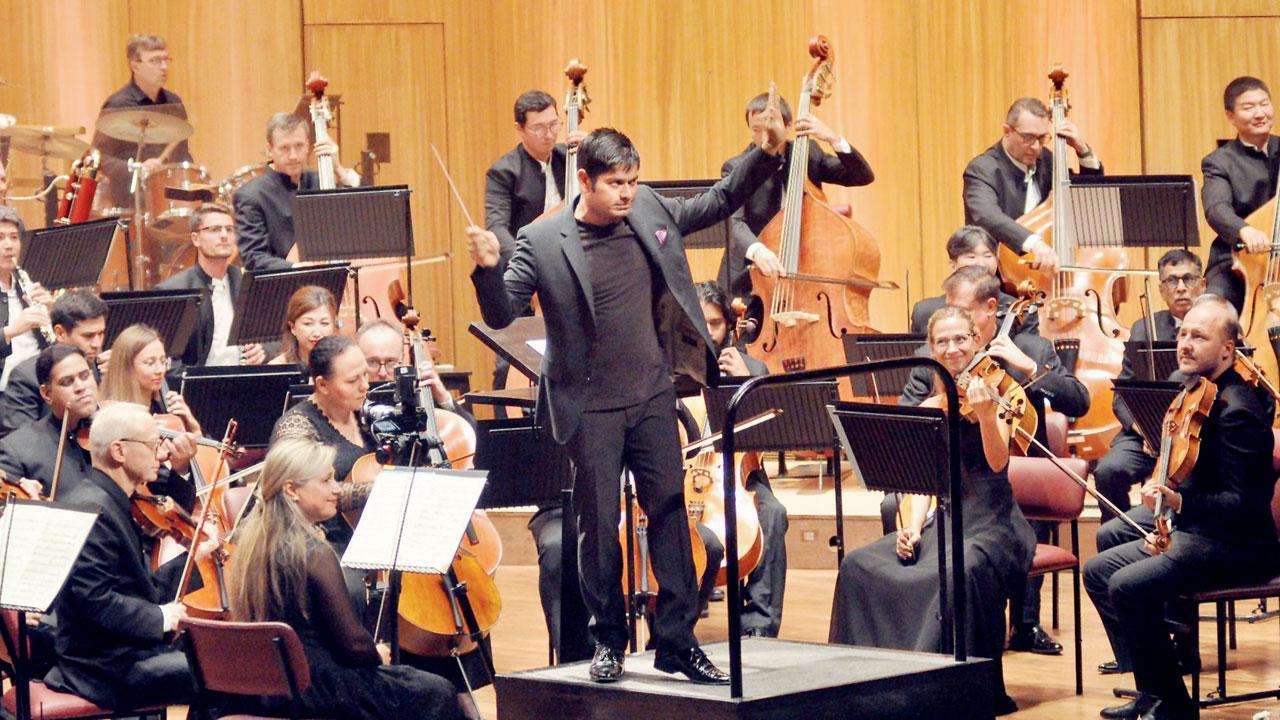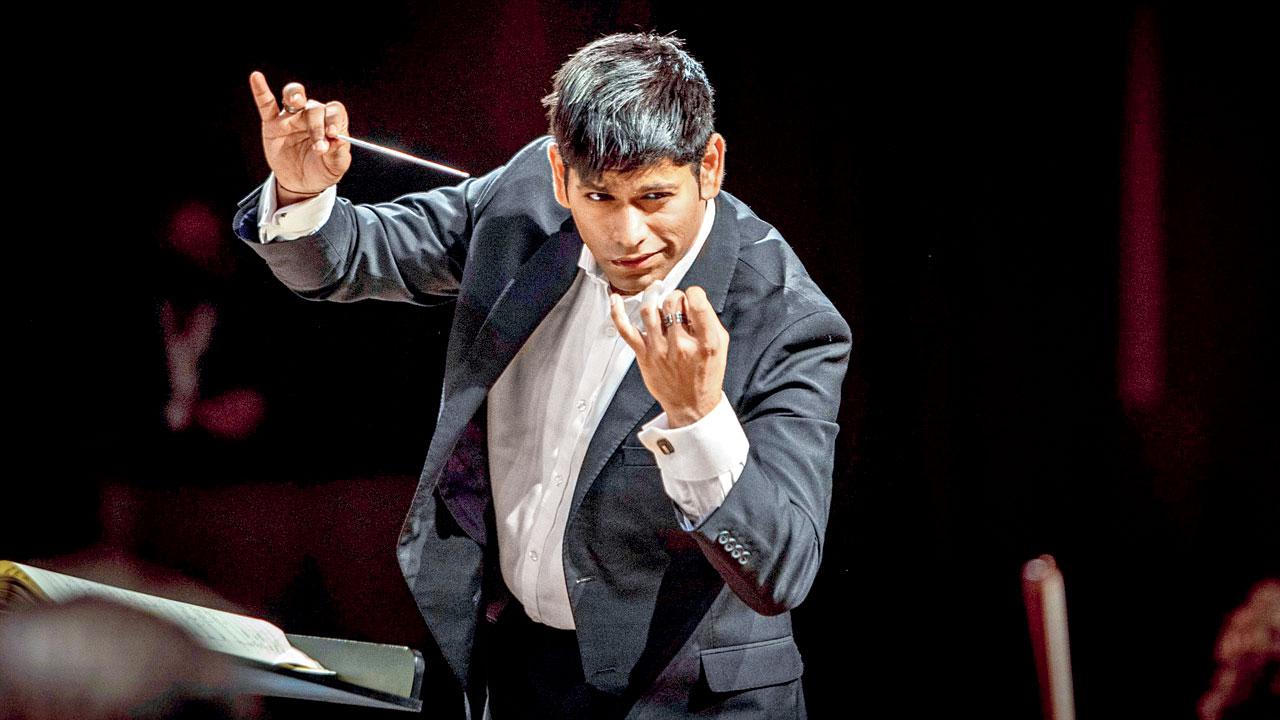Attend a symphonic spectacle where British conductor Alpesh Chauhan will bring to life a curated masterpiece honouring the greats of Western Classical music

British conductor Alpesh Chauhan (centre) at Symphony Orchestra of India’s Autumn 2022 Season. Pics Courtesy/NCPA
Symphony Orchestra of India’s (SOI) Autumn 2023 season is coming up with Schumann & Stravinsky, a performance that will be conducted by Alpesh Chauhan OBE. Chauhan will lead the programme that opens with Richard Strauss’ Suite from his opera Der Rosenkavalier; veteran cellist Steven Isserlis will join with Schumann’s cello concerto; and there’s music from Stravinsky’s ballet, Petrushka (1947 version). We speak to the conductor, who shares about this 110-minute programme that will be conducted at the National Centre for the Performing Arts on Wednesday.
ADVERTISEMENT
The performance will include the Strauss Suite followed by Schumann’s Cello concerto and Stravinsky’s Petrushka. Was there a thematic idea or concept you were looking for in the compositions?
I felt it would be good to do something that has a lot of colour, energy, a story and a narrative for the audience here at the NCPA in Mumbai. Stravinsky’s ballet Petrushka and Richard Strauss’s suite are incredible pieces in their own way. They are so colourful and created by two composers who are on top of their game. They are geniuses and their work is remarkable. Strauss’ Der Rosenkavalier shows Octavian’s (a young nobleman) affair with a slightly older lady Marschallin; but then Octavian falls in love with young girl Sophie. And this, he [Strauss] shows through the entire opera in such a fantastic way that you feel the story. Most of the suite is in the proper order of the opera — The Firebird, The rite of spring and Petrushka. Petrushka is also the hardest of the three. It is also the most complete, the most generous in terms of how the characters are addressed. The Firebird has such beauty and such an experiment of colour that it can show what one can do in terms of the orchestra palate in front of you. There’s so much rhythm in the pieces!

In your opinion, what sets Strauss’ work apart from his contemporaries?
Strauss uses a palate not dissimilar to [Gustav] Mahler where there is so much independence of lines. Unlike a composer, say Bruckner or Brahms who also have independent lines, but they are interweaving. The interweaving in the works of Mahler and Strauss is on another level. Sometimes, there can be 20 different voices doing 20 completely independent things doing things that are completely complex. It is incredibly delicate work to rehearse and prepare as well, because there is so much to make clear in the narrative as to what the conductor or the performers want to make the primary or the secondary line. There is a lot to decipher. I always think that of all the work that I do, Strauss and Mahler give me the most amount of stress in the studying process because they have that much more to decipher, to get to grips with it. He is something of a genius, as well as a wonderful tunesmith, the end of the suites we play, consists of some of the most beautiful music ever composed on earth, ever, in existence.
What were the challenges when bringing together such distinct individual pieces in a unified performance, in terms of the studying process?
These pieces are difficult. Strauss’s piece is one of the toughest pieces I have ever done; Petrushka I have done before a lot but it’s not something that you can just pull off. It is extremely complicated, and you often need the conductor to be secure in what he is doing. Every five to six bars, the music is developing. As this is a ballet score, the music is always changing. And that’s the difficulty. Sometimes there’s no relation between one section and another section — there are just different ideas. And to have this clear in my head, is a challenge. My job is to present all this as one story to the audience.
On: September 20; 7 pm
At: Jamshed Bhabha Theatre, NCPA, Nariman Point.
Log on to: in.bookmyshow.com
Cost: Rs 500 onwards
 Subscribe today by clicking the link and stay updated with the latest news!" Click here!
Subscribe today by clicking the link and stay updated with the latest news!" Click here!







